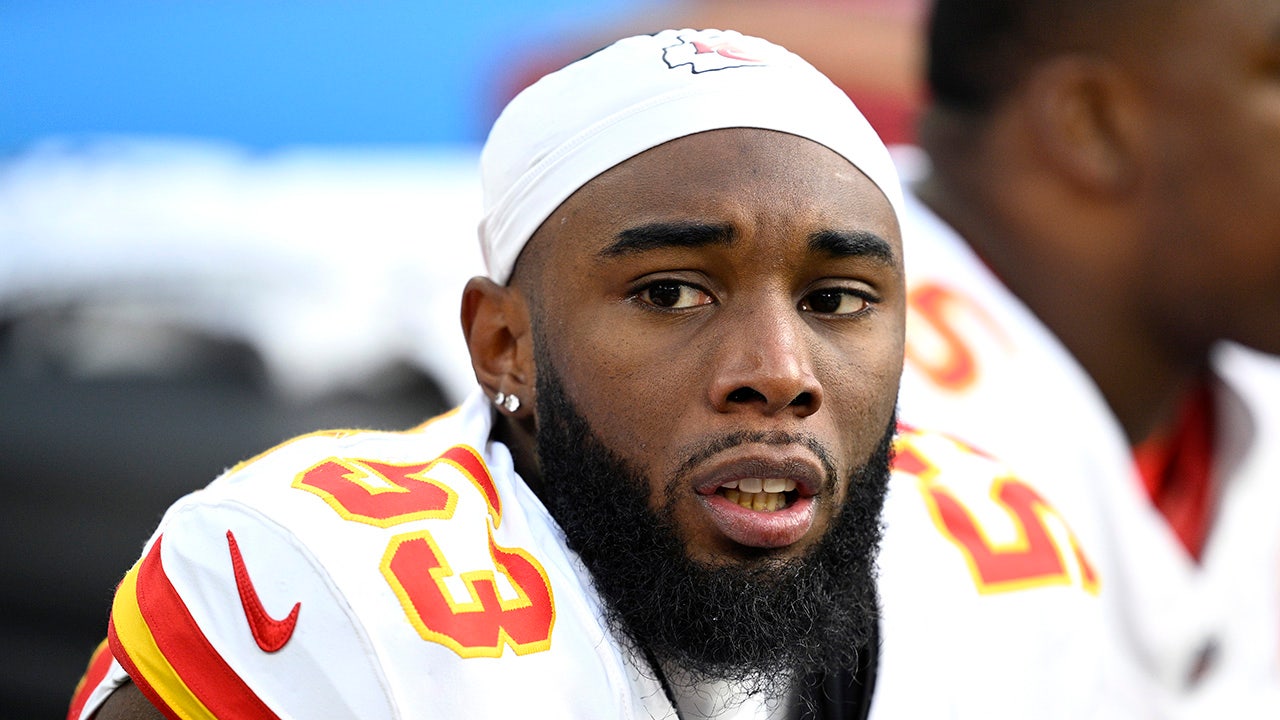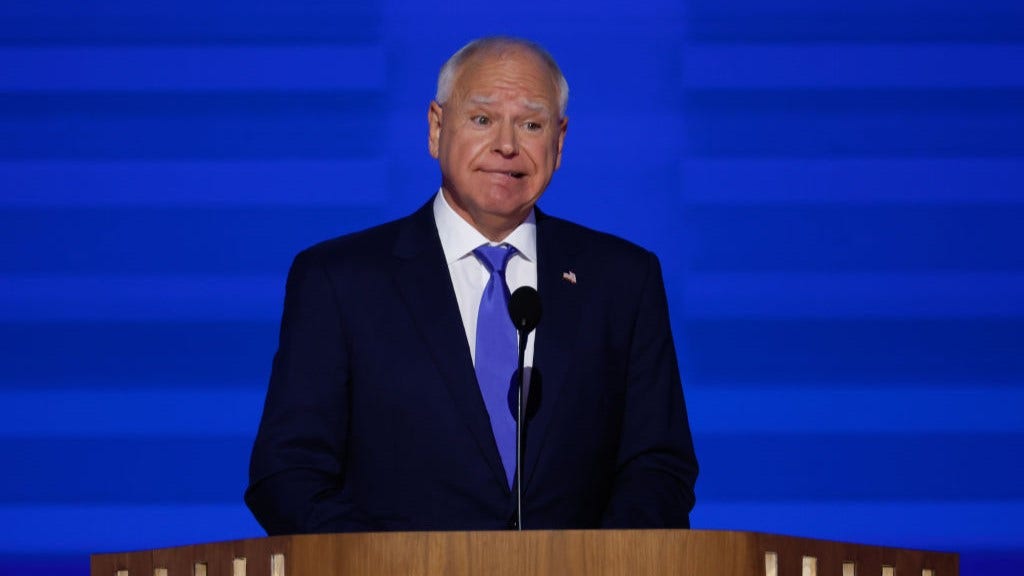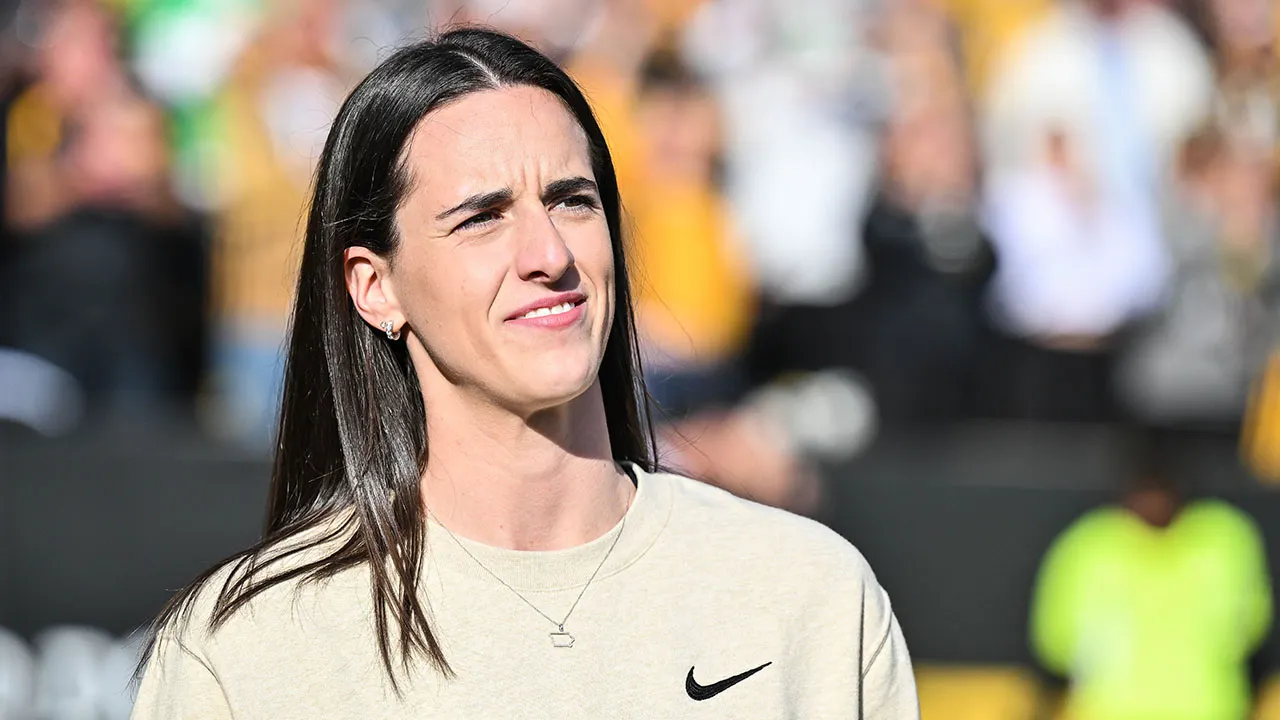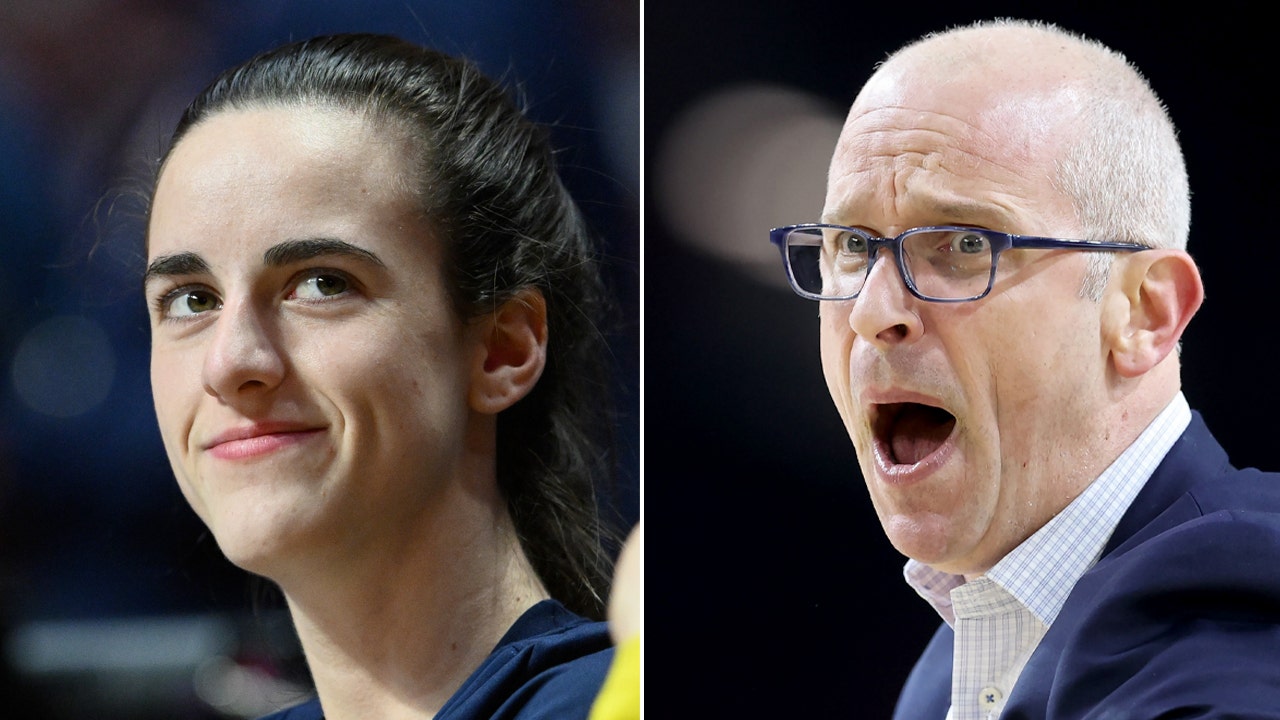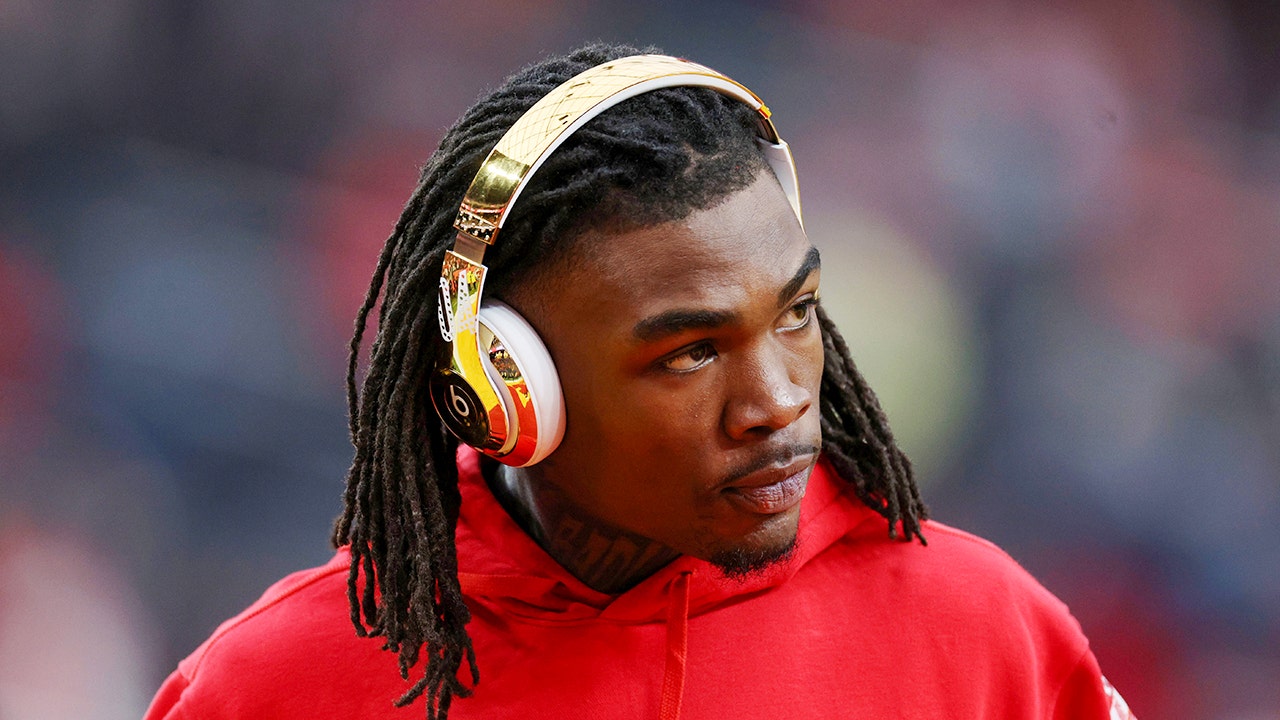MEMPHIS, Tenn. — With 17 seconds left in overtime, leading by three, a trip to the Sweet 16 in the balance, Houston senior walk-on Ryan Elvin stepped to the foul line.
Elvin had played 60 total minutes all season, almost all of them in garbage time. But head coach Kelvin Sampson was forced to send him to the scorer’s table one second earlier when a fourth Cougars player fouled out of the game — Jamal Shead, the All-America point guard and Big 12 Player of the Year. Houston put the last guy on the bench in for its star player, and suddenly, instantly, he was the open man on the inbound pass, with a trip to the stripe and a chance to decide the game.
He missed the first.
He made the second.
The four-point lead was enough for Houston to hold on for a 100-95 victory over Texas A&M on Sunday in arguably the best game of the NCAA Tournament’s opening weekend, highlighted by the most unsuspecting of heroes.
“I was shocked he missed one,” Shead said afterward. “He works just like we work. And if I’m being honest, he works harder than we work. That’s the guy that we trust and is a pillar of our culture.”
The victory advanced the No. 1 seed Cougars to the Sweet 16 for a fourth straight postseason, where they will face No. 4 seed Duke in Dallas on Friday in the South Regional.
“I’m not gonna lie and say I wasn’t nervous. I was pretty nervous,” said Elvin, who is now 4 of 6 on free throws this season. “That was a testament to the way our program is run. We used everybody. (Biggest free throw) of my life, for sure. By a long shot.”
Elvin’s one shining moment was the capper to an incredible game with a stranger-than-fiction ending. Houston was in control for much of the night and in front for the entire second half, including a 10-point lead with 1:24 remaining in regulation. But the No. 9 seed Aggies, a day removed from a 98-83 first-round win over Nebraska, rallied in dramatic fashion, punctuated by a buzzer-beating 3-pointer by forward Andersson Garcia to force overtime. Garcia was just 8 of 19 on 3-point attempts this season before burying what coach Buzz Williams called a “shot that will go down in Texas A&M lore.”
BUZZER BEATER TO FORCE OT 🚨🚨🚨#MarchMadness pic.twitter.com/mZSqICdiZR
— NCAA March Madness (@MarchMadnessMBB) March 25, 2024
Houston outscored A&M 14-9 in the extra period despite ending the game with four of five starters fouled out, the first time since 1987 a team has won an NCAA Tournament game with that distinction.
“That’s a perfect record for Houston, to have four players foul out and still find a way to win,” said Sampson. “All these years I’ve been doing this stuff, I don’t know if there’s a more satisfying win than tonight. Just can’t tell you how proud I am of this group. Just really, really proud of this team.”
The foul trouble required the short-handed Cougars to dip into an already thin bench throughout the game, which seemed as if it would spell disaster with an additional five minutes on the clock.
Instead it was a gutsy win for a program that has become defined by its culture of toughness under Sampson. Generally, this toughness is ascribed to Houston’s physicality and defense. That was evident on Sunday — often a little too evident, considering the 28 fouls and 45 free-throw attempts for A&M. But as the game wore on, Houston’s toughness became a reflection of its resiliency.
“When that (shot) went in (to force overtime), I’m sure most people’s thought process was, ‘Houston screwed up, they’re going to lose now,’” Sampson said. “That would have been the wrong assumption, because our kids are built for that.”
From the top of the roster to the bottom, it was a team fighting for each other. And for those no longer with them.
At 68 years old and in his 10th season at Houston, Sampson describes himself as a “perpetual tinkerer.” He goes into the office every day to watch film, make practice notes or go over scouting reports.
“When I go in on Sunday mornings, that’s my favorite time because nobody’s there,” said Sampson. “Except one person: Ryan Elvin.”
Elvin joined the program in the same 2020 recruiting class as Shead, coming from in-state Cedar Ridge High School out of Round Rock, near Austin, where he was a first-team, all-district player in 6A, the largest classification in Texas. He’s the stereotypical walk-on: the short, scrawny kid at the end of the bench who’s a heck of a ball player, but doesn’t have the athleticism to play at a high-major Division I level. Sampson and his staff asked Elvin to walk on anyway, recognizing in him the same work ethic and tenacity that has produced 125 wins (and counting) the past four seasons, more than any other D1 program in the country over that span.
Elvin has been with the team for all 125 of them, though never in such impactful fashion. With about two-and-a-half minutes left in overtime and the fouls piling up, Sharp, who had already fouled out, looked down the bench at Elvin and told him to stay ready.
“Because you never know what’s going to happen,” Elvin said in the locker room after the game. “And something crazy happened,”
Elvin is a gym rat, firing up shots alone on Sunday morning as Sampson tinkers around. He runs extra sprints, gives teammates rides to practice, cooks dinner in his apartment and invites the team over.
“Ryan is a leader,” Cryer said afterward. “People might not see it because he doesn’t get the (playing time), but he went out there and showed that he’s a big part of the team.”
It’s part of the struggle, on the court and off, that has endeared Elvin to the team and its fan base. In October 2021, just before the start of his sophomore season, Elvin’s father, Scott, passed away after an extended illness. Sampson described Scott as Ryan’s biggest fan.
“That was a big loss to our program,” said Sampson.
It wasn’t the only one. Sampson has talked in recent weeks about four key players this group has had to replace from last year’s roster: Marcus Sasser, Jarace Walker, Tramon Mark and Reggie Chaney. Sasser and Walker were first-round NBA Draft picks. Mark transferred to Arkansas. Chaney graduated after three seasons with the Cougars, then died last August from an accidental overdose.
He was a 6-foot-8, tough-as-nails bruiser — a quintessential Houston big man. Sampson used to call him his security blanket, telling Chaney, “Some days when it’s hot, I may not need you, but if there’s a little bit of a chill in the air, it’s good to know I’ve got that blanket there.”
The head coach has referenced Chaney in post-game press conferences, and the team wore a No. 32 patch on its uniform this year, but Sampson said Sunday that for the first time all season, he brought up Chaney in the locker room at halftime.
“He mentioned Reggie, and I kind of started to tear up a little bit,” Shead said. “That dude was a warrior. He played with broken knuckles, stress fractures in his knee, back spasms. So when (Coach) asked, ‘What would Reggie do?’ Reggie would fight. And I think we did that in the second half.”

Jamal Shead led the way as usual for Houston — until he fouled out. (Stacy Revere / Getty Images)
Shead has been fighting all season. The senior captain has been not only Houston’s best player, but one of the best in the country, carrying a banged-up Cougars squad to a Big 12 regular season championship their first year in the conference and another No. 1 seed in the tournament. He was critical again on Sunday, scoring when needed, skying for rebounds and put-back dunks, and setting up teammates.

GO DEEPER
‘The one who stirs the pot’: Jamal Shead shoulders Houston’s hopes for another NCAA Tournament run
A handful of his 10 assists went to Emanuel Sharp, the 6-foot-3 wing who had a career-high 30 points. Sharp’s role increased when Terrance Arceneaux tore his Achilles in December. J’Wan Roberts wears a wrap on his right hand after getting seven stitches earlier this month and has battled a shin injury since the Big 12 tournament. He gritted his way through 33 minutes and was the only starter who didn’t foul out despite picking up his fourth with nearly eight minutes left in regulation. Houston’s frontcourt was thinned earlier this month when freshman forward Joseph Tugler broke his foot. In mid-February, backup guard Ramon Walker Jr. tore his meniscus. Freshman center Ced Lath, whom Sampson hoped to redshirt this season, was pressed into service amid all the injuries.
“We were just cobbling it together,” Sampson said.
Lath and Walker, who had a crucial offensive put-back with 70 seconds left, were among those on the floor in overtime, along with Elvin. Walker left the court with tear-stained cheeks after the win, thinking of Chaney.
“Being able to get through that game and come out on top, it’s a testament to how connected we are as a team,” he said. “From Jamal to Ryan, it’s just everybody being ready to play.”
In the huddle before overtime began, Sampson reminded his players about the Feb. 24 overtime win at Baylor, when the Bears came back from a 15-point deficit, the crowd in a frenzy, only for the Cougars to pull away again in the extra session. A team built on toughness — one that has remained at the top of the rankings and standings and metrics all season, injuries and all — tapped into it yet again on Sunday, buoyed by each other and those no longer with them. They get to play another game because of it.
The challenges don’t stop. A Duke side that scored 93 points in its second-round win over James Madison and made 14 of 28 3-point attempts awaits in Dallas, where the Coogs will at least have the home-state crowd advantage. But another Final Four run, like the program had in 2021, will require a couple more collective, culture-infused efforts.
“Survive and advance” is the popular cliche this time of year. Houston lived it on Sunday.
(Photo of Emanuel Sharp and Ramon Walker Jr.: Petre Thomas / USA Today)

